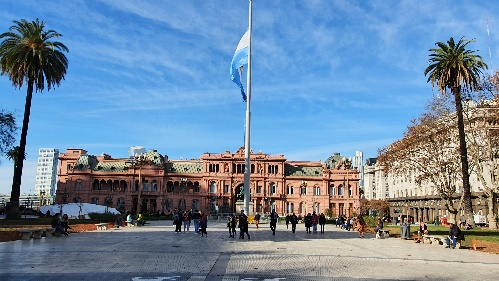When the Argentinian Chamber of Deputies passed new regulations and incentives for major investments as part of the "Ley Bases" (Law of the Bases) legislative package by a narrow majority at the end of June 2024, this came into force on 8 July 2024.
One of the most important aspects of this legislative package is the "Régimen de incentivo para grandes inversiones" (RIGI), which the government intends to use to attract international investment for major projects to Argentina. RIGI has a term of two years - with the option to extend - and is intended to promote investment in national and international projects in nine key sectors: Forestry, Tourism, Infrastructure, Mining, Technology, Steel, Energy, Oil and Gas.
To qualify for RIGI benefits, a minimum investment of USD 200 million is required and projects must contribute to both increasing the country's export rate and creating jobs. Projects that fulfil these requirements receive guaranteed exchange rate duty and tax concessions. These include a reduction in income tax from 35% to 25%, a reduction in tax on dividends from 7% to 3.5% after the 8th year and an exemption from export tax after the 2nd year for strategic exporters.
Further reforms relax Argentina's strict labour laws, including extending the probationary period and making it easier for employers to dismiss employees. On the other hand, the RIGI also contains a provision that requires VPU (Vehículos de Proyecto Único)** companies to source 20% of their total investment from local suppliers, provided they can offer competitive prices and quality.
The deadline for companies to join RIGI is two years from the entry into force of the law, i.e. until 9 July 2026, with the benefits being valid for 30 years.
| Thanks to the RIGI, companies are already showing great interest in expanding or starting investment activities in Argentina. |  |
Financial markets
Investors on the financial markets are also betting on the success of the Milei government. Argentina's most important stock market index (Merval) has risen by 86.57% since the beginning of 2024.
Inflation and consumer prices
The situation on the financial markets is also linked to inflation and consumer prices. The effects of the Milei government in terms of reducing the budget deficit and inflation are initially positive: since the beginning of the year, the Argentinian national budget has been balanced for the first time in many years. Milei has achieved this with a very rigorous austerity programme; social spending, pensions and transfer payments in particular have been radically cut.
Argentina's monthly inflation rate stood at 3.9% in August and is likely to end the year at an annualised rate of almost 123%, according to analysts surveyed by the central bank. The monthly inflation rate has thus remained roughly the same since May.
The new forecast represents a decrease of 4.75 percentage points compared to last month's survey. According to the survey, prices will rise by 3.5% in September. This marks a slowdown in price increases after a rapid rise that followed deep spending cuts and the devaluation of the peso.
The analysts are also forecasting a 3.8% year-on-year decline in the real gross domestic product (GDP) of the South American economy in 2024, which is slightly below their previous estimate.
"Activity levels will begin to recover in the third quarter of the year with an increase of 0.9%," the statement said, while participants expected average growth of 3.5% in 2025.
The analysts are somewhat more pessimistic than the Milei government itself: They have presented a draft budget for 2025 in which they predict inflation of just over 18% next year, with GDP expected to grow by 5% next year and by a further 5% in 2026. The draft budget envisages that the economy will grow by 5% in 2025, inflation will be 18.3% and the exchange rate will reach 1,207 pesos per dollar by the end of the year.
InterGest Argentina knows the legal, financial and cultural aspects that you need to consider when setting up and managing a company in Argentina. Matías Vagedes (fluent in German & English) and his team will be happy to answer any questions you may have.
In addition, InterGest Argentina is planning an information event in Germany within the next 6 months. Take the opportunity for an initial, non-binding discussion!
**A VPU (Vehículos de Proyecto Único) is a company created for the sole purpose of developing a specific investment project within the framework of RIGI.





